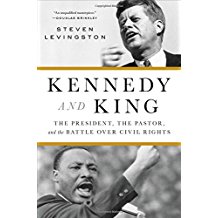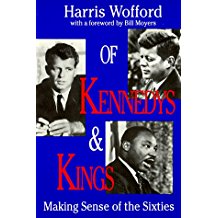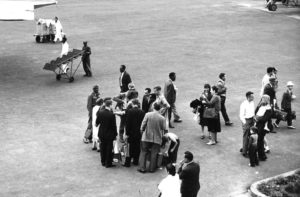The Legend of Kennedy, King, and Harris Wofford (Ethiopia)
I have been reading a massive book by Steven Levingston entitled Kennedy and King: The President, The Pastor, and the Battle Over Civil Rights. Levingston is the nonfiction editor of the Washington Post.
My primary interest, of course, is what he had to say about Harris Wofford and Sargent Shriver and their role in the famous phone call to Coretta King after her husband had been jailed in Georgia during the 1960 presidential campaign. Levingston details all the events (political and otherwise) that led to JFK’s spontaneous call to Coretta from his hotel room at the O’Hara Airport.
Years ago, back in 1980, Farrar Straus Giroux would publish Wofford’s own book entitled Of Kennedys & Kings: Making Sense of the Sixties that also detailed the events surrounding the famous phone call.
It was first thought by the political insiders that the ‘call’ would cost Kennedy the election. As Levingston writes, “King’s release had an immediate and profound impact on the black community, unleashing a wave of support for Kennedy. In a single day, the senator beat back years of skepticism about his commitment to racial justice.”
In his book The Making of the President 1960, Theodore White, says, “Some Negro political leaders claim that in no less than eleven states…with 169 electoral votes, it was the Negro community that provided the Kennedy margin of victory.”
After the election Shriver, as we know, took over the Peace Corps and Wofford became JFK’s civil rights aide. King, however, was coming under suspicion of being a Communist and Kennedy was backing off his support of full civil rights for African-Americans. Levingston reports in his book, “Wofford had become frustrated by Kennedy’s repeated delays on civil rights.”
Wofford was on his way out of the White House, Kennedy didn’t want to be pushed on civil rights and Wofford was determined to bring about change in America.
Levingston goes on to write: “Ever the idealist, Wofford had assessed that he could still make a powerful contribution to the world by devoting himself to the creation of the Peace Corps, one of the signal achievements of the Kennedy administration. He had been asked by Peace Corps director Sargent Shriver to move to Addis Ababa, Ethiopia, to take up the role of special representative for the organization in Africa. Wofford embraced the chance to help foster educational, social, and economic development for the struggling nations there.”
And so it was that Harris Wofford was waiting on the tarmac of the old airport in Addis Ababa when a fleet of DC 6s safely brought the first PCVs to Ethiopia, all 290+ of them, all arriving on a rainy day in early September 1962, ready to greet anyone and all with a well-practiced Tenastelign Indemin aderu.

No comments yet.
Add your comment